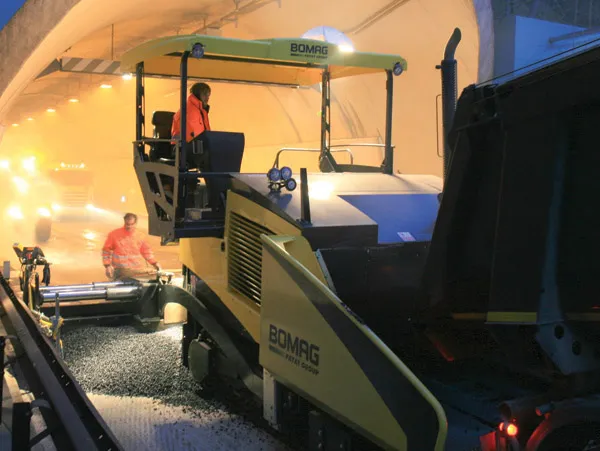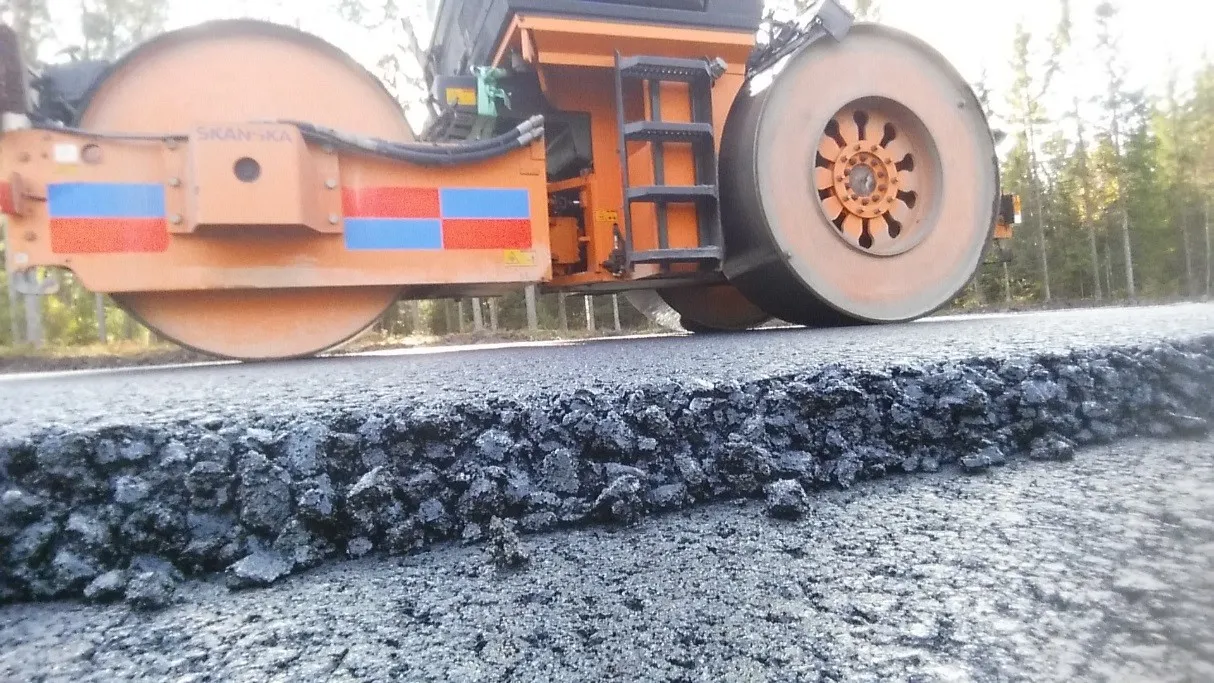BOMAG says that its new BF800 paver has now been well proven in tough working applications. The newly developed BF800 follows the same basic design principles of the smaller BF300 and BF600 models and weighs in at 20tonnes, with a maximum screed width of 2.5-10m. Extensive testing of the BF800 was carried out in an array of difficult operations and in late 2010 some 14,000tonnes of asphalt was laid in 3.5 days in 24-hour shifts to reconstruct the Brenner highway on the A22 near Bozen in northern Italy.
April 10, 2012
Read time: 2 mins

The tight time frame and the high demands placed on the finisher in terms of quality and productivity made for an interesting and challenging test. Over 50,000m² of highway was renewed with a 70mm asphalt binder course and a 40mm chip mastic asphalt.
Irregular delivery of material to site on this busy road led to unscheduled, traffic-related interruptions to work. Typically, stop-start paving can result in pavers lowering screeds onto the hot mat causing unevenness, a problem made worse by cooling of asphalt in front of the screed. High tolerances were achieved, with the result of a good surface finish.









